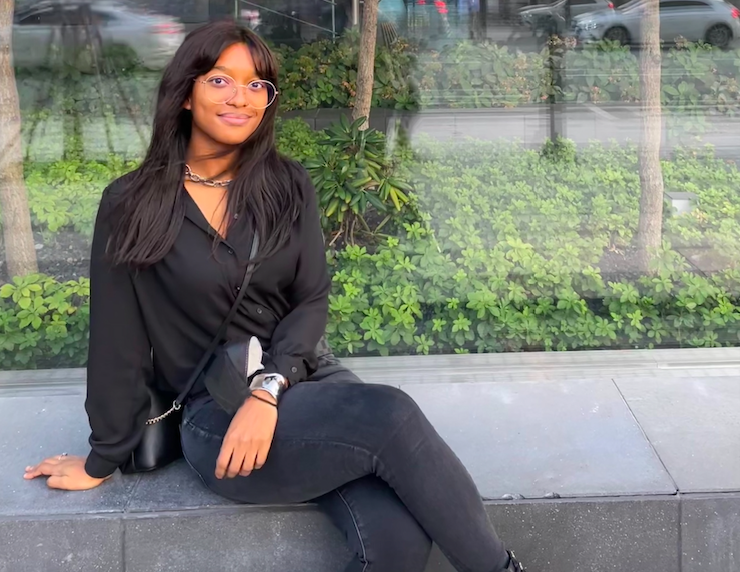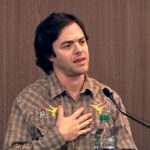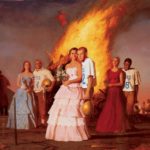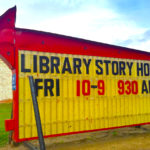Kat Lewis is a fiction writer and video game narrative designer based in Seoul. Her work has appeared in Off Assignment, TriQuarterly, and The Rumpus. In 2018, she was a Fulbright Creative Arts grantee in South Korea. She is currently at work on a novel about the Black experience in Korea.
How did you get started traveling?
While most of my friends spent their summers at sleep-away camp, my parents sent me away on travel programs. My first trip was a ten-day tour of the Grand Canyon. As I grew older, I spent my summers further and further away from home in various European countries. I’m grateful for this experience because I learned at a young age how important travel was for building self-awareness. Ever since then, I’ve always worked to prioritize travel in my life.
When I was in college, I studied abroad in France and England and eventually lived in Korea on a Fulbright Creative Arts grant. After my grant ended, I briefly returned to the US to finish grad school. As soon as I graduated, I hopped on a plane back to Seoul where I now live.
How did you get started writing?
Growing up, I wanted to be a rock star. When I was thirteen, my parents sent me to a boarding school in Baltimore. There, I took guitar, violin, and piano lessons, thinking I would eventually go to Peabody Institute for undergrad. But after my first year, I became frustrated with our rigid schedule. Between class, required meal times, and mandatory study halls, I didn’t have a lot of free time to practice or compose.
At the time, my younger sister was enrolled in an online school. She typically finished her entire day of schoolwork by noon and had the rest of the day to do whatever she wanted. When I was fifteen, I convinced my parents to let me come home and do school online so that I could get my 10,000 hours of practice and be well on my way to becoming a professional musician.
Of course, when I moved back home, I barely touched any of my instruments. One day, when I should have been playing guitar, I discovered NaNoWriMo and the now-defunct Script Frenzy. I finished all of my schoolwork around lunchtime and spent the rest of my day writing. By the end of tenth grade, I had written two “novels” and one “screenplay.” I use quotes because I was a child, and I hope those stories never see the light of day, but this experience was important because it led to two major discoveries. The first was that I was meant to be a writer, not a musician. The second was that I already had enough self-discipline to independently complete a long-term creative project. As I finished high school, I adjusted my college and career plans. In the end, I still attended Hopkins, but I was studying Writing Seminars on Homewood campus instead of music down the street at Peabody.
What do you consider your first “break” as a writer?
A month into my first semester of online school, The Vampire Diaries premiered on The CW. It was September 2009. New Moon’s release was only three months away, and the pop culture obsession with vampires was in full swing. My best friend and I had planned to hate-watch Vampire Diaries because there was no way it could be as good as Twilight. But as the credits rolled at the end of the pilot, I sat on the couch with my golden retriever absolutely astounded. The pilot alone was orders of magnitude better than Twilight, and I remember thinking then at fifteen years old: “This is what I want to do with my life. I need to get as close to writing Vampire Diaries as possible.”
Seven years later, I got my first job in publishing as an executive assistant at a licensed book publisher. Three months into the job, I was taking minutes while my boss was on the phone with Warner Bros.. Toward the end of the call, he mentioned that our Vampire Diaries book was “in trouble” because its editor had just left the company and no one else had watched all eight seasons of the show. Before this moment, I had no idea we had a Vampire Diaries book under contract. As soon as he hung up, I all but demanded that he give the book to me. This was the first book I edited. It was an important moment in my writing life because it affirmed in a small way that dreams do come true.
As a traveler and fact/story gatherer, what is your biggest challenge on the road?
I have a lot of anxiety about getting lost. For a long time, I wouldn’t travel alone because I didn’t trust my own sense of direction. When I first moved to Korea on the Fulbright, I had a rare combination of funding and unstructured time. One of my biggest regrets is not traveling enough within Korea while I was here on my Fulbright. During my grant period, I hunkered down and made a tremendous amount of progress on my novel, but I only left Seoul three times. Now that I’m living in Korea again and working a full-time job, it’s hard to do a trip to Busan or Jeju without feeling rushed to see everything in one weekend.
What is your biggest challenge in the research and writing process?
Since I write about the Black experience in South Korea, lived experience is research for me. Lately, I’ve been overcorrecting for the lack of traveling I did during my Fulbright, so I’ve gotten into the habit of saying yes to everything. Last minute trip to a music festival? I’m in. Oh, you wanna drive four hours to a temple outside of Seoul? Bet. Your family needs help harvesting grapes in Gimcheon? Dope, let’s do it.
All of these experiences have given me so many brilliant things to write about, but I’m now at the point where I need to sit down and actually write. That said, at the moment, my biggest challenge is saying no for the sake of staying in and writing.
What is your biggest challenge from a business standpoint?
Earlier this year, I took a job as a narrative designer at a video game developer here in Seoul. I also recently launched a Substack where I’m publishing the craft lessons from the novel writing course I taught at the University of South Florida. These days, time management has been a challenge as I’m trying to balance writing for work with writing my novel and Substack. It’s a good problem to have because I’m actually making a living writing for once. But now that money is so deeply involved, I have to reevaluate my priorities.
Have you ever done other work to make ends meet?
Of course! I’ve been a book editor, business development assistant, video production manager, tutor, college instructor, and a hagwon teacher. I’m not picky when it comes to my day job. As long as I have energy to write after work, I’ll try anything as a day job.
What travel authors or books might you recommend and/or have influenced you?
I write a lot about life in Korea for an English-speaking audience. If I Had Your Face by Frances Cha and Re Jane by Patricia Park have both informed how I represent Korean language and culture in my writing.
What advice and/or warnings would you give to someone who is considering going into travel writing?
Be mindful of your permission and privilege throughout the writing process. If you’re writing about a community you’re not a part of, interrogate why you’re writing each and every piece. Use sensitivity readers and listen to them. The things we write are powerful. It’s important to approach our subjects with respect and humility.
What is the biggest reward of life as a travel writer?
I fully became myself because I moved to Korea. In the US, I’ve traveled to nearly every state and lived in seven states in total. As a Black woman, I feel safer and more welcomed here in Seoul than I’ve ever felt anywhere in the US. If I hadn’t traveled so much at a young age and gotten comfortable being uncomfortable, I’m not sure I would have ever applied for the Fulbright, moved to Korea, and become the person I’m proud to be.





